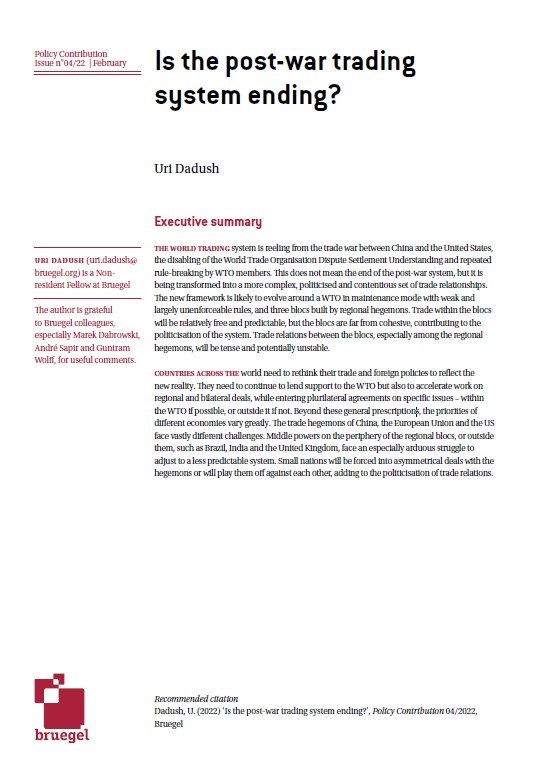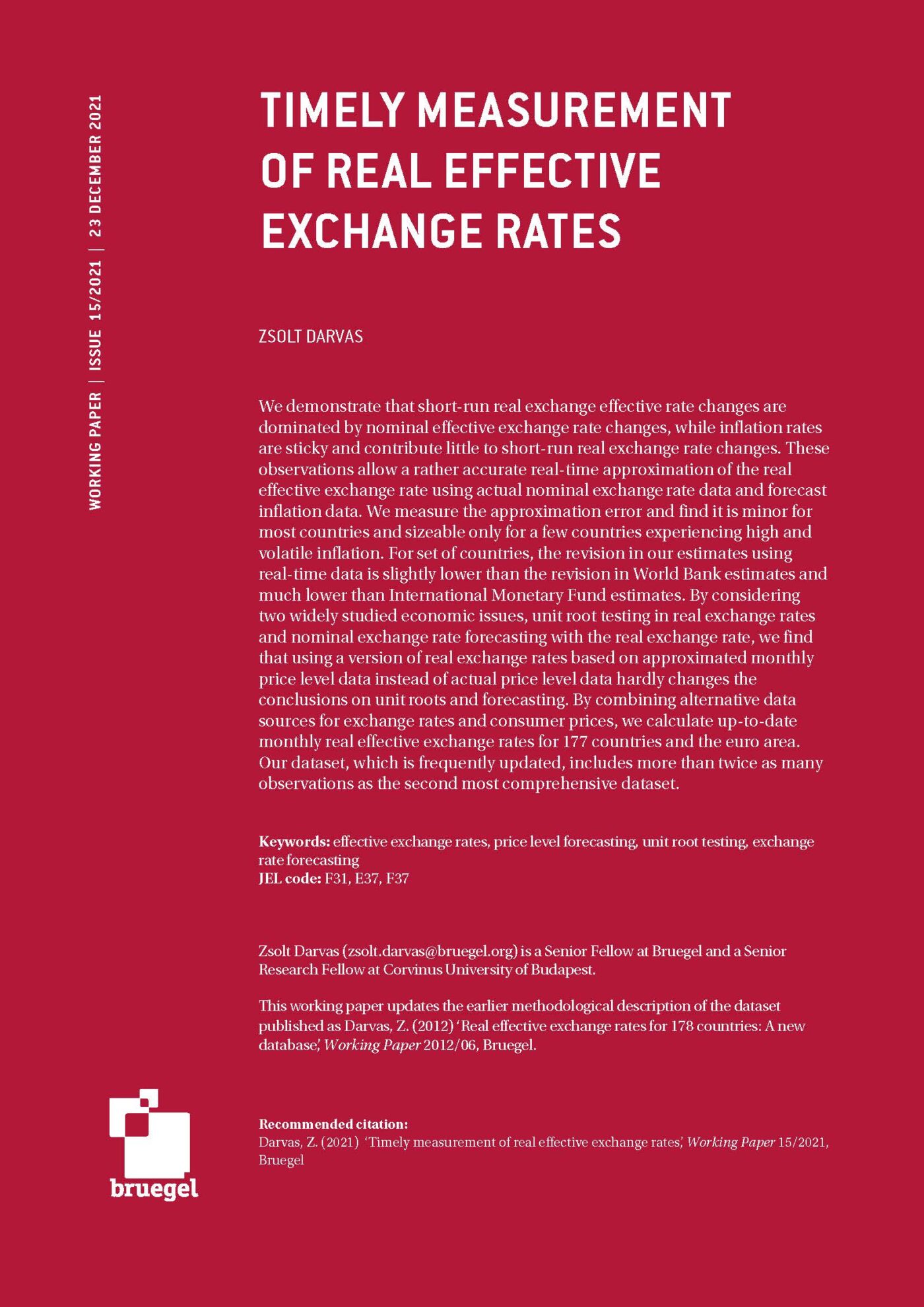Blog Post
Brexit: Now for something completely different?
The life of Brexit. After a week of ECJ rulings, delayed votes, Theresa May’s errands across Europe and the vote of no confidence, we review the latest economists’ opinions to try to make sense of what has changed and what hasn’t.
Luxembourg, December 10th 2018: “The United Kingdom is free to unilaterally revoke the notification of its intention to withdraw from the EU”. This decision of the European Court of Justice came ahead of last Monday’s British parliament vote on the Brexit withdrawal deal, which was subsequently delayed. From that point on, an eventful week followed with an imbroglio of political, economic and legal matters. We review economists’ views on the latest Brexit developments.
While the political arrangements linger, so does uncertainty. Tony Yates argues that Brexit is now more problematic than the financial crisis of 2008, both regarding the procedures to follow and the political drive to follow them. “Although the economic damage has been so far less, and more slow-moving, in many ways I think the difficulties we face now have the potential to be much worse. (…) During the financial crisis, there seemed a basic acceptance of the idea that although the authorities had failed us in managing the financial system, this was a subject that the authorities’ delegated experts were best placed to fix. Not so now. Economic and technocratic aspects of the costs and benefits of leaving the EU have been relegated relative to other features, like national and cultural identity, on which it is not appropriate to delegate to decision-making elites. And since the nation at large is divided on these questions, this adds to the paralysis. ”
Seema Malhotra calls this a “high stakes game” where “trade uncertainty threatens to set the UK back by 46 years”, as there is no legal guarantee that the EU bilateral trade deals the UK currently enjoys can be rolled over following Brexit. “The implications for businesses currently trading under these agreements are clear”, and she details: “extra costs, increased duties and slower reaction time when providing after-sales support”. Furthermore, “Leaving the EU with no deal and trading on WTO terms would increase our trading barriers with both EU and non-EU countries alike.”
Jiaqian Chen writes for the IMF Blog on the long-term impact of trade barriers, lower migration and lower foreign direct investment flows. The impacts are computed under two scenarios: the FTA scenario, under which there is a free trade agreement but also restrictions on migration flows; and the WTO scenario, with stricter migration controls and no preferential access to the EU market. In the former scenario, “UK output will be about 2½ to 4 percent lower in the long run compared to a no-Brexit scenario. This translates into a cost of about £900 to £1300 per capita”; In the latter, “the decline in real output relative to no Brexit would be larger, between 5 and 8 percent in the long run (about £1700 to £2700 per capita).” Chemicals and transport equipment would be the most affected sub-sectors in manufacturing. Financial services could also be significantly disrupted.
The economic effects are not only limited to trade. Given the recent fall in 30-year UK bond yields and the potential reversal of the yield gap between two- and 10-year government bonds in the near future, John Wraith, head of UK macro rates at UBS Group AG, commented: “The market clearly believes she [Theresa May] will not get anything material enough from the EU to turn that scale of opposition around, so even if the vote is delayed it’s going to end in the same way — with a big defeat for the government.” Paul Donovan interprets the current exchange rate movements: “The sterling has been weak, the idea being that time spent arguing about who runs the country is time not spent running the country, and if a hard exit (which investors do not want) is to be avoided, it might be quite useful if someone were to run the country.”
Following Wednesday’s confidence vote, the pound has recovered, which John Authers says “is justified”: “What markets want to avoid is a disorderly ‘no-deal’ exit, in which the U.K. suddenly abandons several hundred treaties and has nothing to replace them. A leadership election, which would take more than a month to complete, would have increased this risk greatly.”
James Smith from ING Economics argues that the “sharp fall in last week’s UK services PMI demonstrated fairly clearly that concerns about ‘no deal’ are beginning to have a tangible impact on growth. With the vote increasingly likely to be pushed back into the New Year, we suspect this weaker momentum will persist over the winter.” Growth is expected to slow to 0.2-0.3% over the fourth quarter of the year. Smith also elaborates on what the delay in the parliamentary vote means going forward. “So while May is set to hold meetings in Brussels this week, our feeling is that this could result in the vote being pushed back until well after Christmas. (…) We think it might not be until much closer to this date before we know for sure that ‘no deal’ has been avoided, and in the end Parliament may push the Prime Minister towards a Norway-style deal, or even potentially a second referendum, in order to secure approval from MPs.”
Indeed, some economists’ commentary has been centred on the political and strategic dimension of the events. Chris Dillow writes in his blog that “the high cost of Brexit, far from being a reason not to leave the EU, is only entrenching Brexiters’ opinions, which means that the divisions Brexit is causing will last for years.” Wren-Lewis calls the delay of the meaningful vote on May’s deal a “serious attack on parliamentary democracy”: “Parliament was on the point of overwhelmingly rejecting May’s deal, which could have led to a process whereby parliament debated over the best way forward.”
Aarti Shankar warns that “Theresa May’s delay tactics could yet pay off”: “the predicted size of her defeat in parliament could have made her position as leader untenable. She therefore chose to pursue talks with the EU that could help overcome MPs’ widespread and deep concerns about the Irish backstop arrangement—and so help pass her deal”. Shankar argues that Tusk’s inflexibility on renegotiating the withdrawal deal in general and the backstop in particular “might change if the UK parliament remains deadlocked in January. After all, the EU has also shown it wants a deal. Its concerted effort to get over the sufficient progress line last December, and its last-minute shift to include a previously unacceptable UK-wide customs union backstop, all point to this”.
Wlfgang Münchau argues that “Despite its many unique features, Brexit has the characteristic of a classic EU negotiating procedure, starting out as a multiple-choice catalogue but always ending up as binary. So when we predict – as we do – that the decision will be deal-versus-no-deal, we are cutting through a lot of the politics that still needs to happen between now and then. The reason we see a rising danger of a no-deal Brexit is our assessment that the UK parliament lacks the alternative majorities needed to push through a referendum or an outright revocation.”
Even if the UK parliament were to push through a second referendum, Simon Kaye explains on the LSE Blog there could be a paradox of preferences, also known as the “Condorcet cycle” between the options of a deal, remain or no-deal. Poll data suggests that “a majority would prefer May’s deal to remaining in the EU outright; almost all polls show that a majority prefers remaining in the EU to leaving; and a subset of these show an even clearer majority preference for remaining over a no-deal exist. Finally, a majority prefers leaving the EU without a deal to the government’s Withdrawal Agreement. Deal > Remain > No-Deal > Deal.”
Therese Raphael boils down the results of Wednesday evening’s vote of confidence on Bloomberg Opinion: “It is hard to see their [the MPs’] answer as anything other than a vote of no confidence in the hardline Brexiters who have been pushing for months to replace May with a leader who would champion a no-deal Brexit”(…) But what does that mean for the future of Brexit itself? “Here little has changed: her party is divided and the fate of Brexit is undecided. There is still no parliamentary majority for Theresa May’s deal, which she will bring to a vote most likely in January, and no majority for holding a second referendum.”
Republishing and referencing
Bruegel considers itself a public good and takes no institutional standpoint. Anyone is free to republish and/or quote this post without prior consent. Please provide a full reference, clearly stating Bruegel and the relevant author as the source, and include a prominent hyperlink to the original post.










